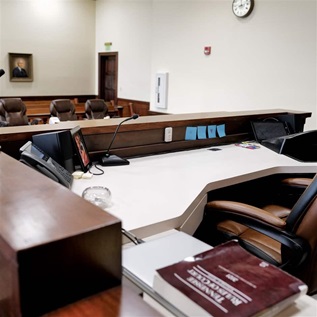The Pew Center for Arts & Heritage Announces 2012 Philadelphia Theatre Initiative Grant Recipients
Philadelphia, PA- The Pew Center for Arts & Heritage has awarded $873,000 through the Philadelphia Theatre Initiative (PTI) to seven theaters, presenters, and artists in the Philadelphia area. These include six grants for upcoming productions in the 2012–14 seasons, and one for research and development of a new play.
The 2012 funded projects represent creative advancement in theater practice for both performers and presenters. Several funded organizations will partner with artists and community members on innovative approaches to creating and presenting plays, providing audiences with potentially memorable theatrical experiences.
The Wilma Theater will host Pulitzer Prize-winning playwright Paula Vogel for a two-year residency project, resulting in the creation and world premiere of a new play. The play will speak to the experiences of American veterans of ongoing wars in Iraq and Afghanistan, and the challenges they face after returning home. The Wilma and Vogel will conduct extensive research, including discussions with veterans and their families and workshops with a full cast of theater artists to inform the final script in advance of the March 2014 premiere. The Wilma will share the collaborative process with patrons through online videos, photos, and journals.
People's Light & Theatre Company will produce Shakespeare's The Winter's Tale as the centerpiece of an outdoor winter festival from January to March 2013. Guy Hollands of Glasgow's Citizen's Theatre and the National Theatre of Scotland, who has previously worked with People's Light, will direct this fast-paced, highly physical production. He will also oversee the transformation of the company's seven-acre Chester County campus into an immersive, communal festival, where cast members interact with audience members, play instruments, and perform circus-style feats. People's Light will conduct workshops with the cast, as well as training sessions for local teenagers who wish to create their own festival acts. Those aspiring theater artists will be encouraged to perform at the festival pre-shows and in other public settings to help promote the production.
The Annenberg Center will present the regional premiere of Mark Bamuthi Joseph's interactive theater work red black & GREEN: a blues and will host the artist for a six-day residency in September 2012. During each performance, audiences will be invited onto the stage set, which will consist of rooms covered with images, projected videos, and handwritten texts from participants in another one of Bamuthi's projects, which sought to understand how citizens from urban areas respond to environmental issues in their communities. Audiences who attend this genre-defying work at the Annenberg—equal parts installation, performance art, and theater—will be invited to participate in live conversations with the artist, to discuss the green movement and how it speaks to them, and to tell their own stories in a related spoken word contest.
“This diverse array of projects will bring major artists to Philadelphia as collaborators for local companies and will include bold interpretations of classics as well as adventurous new work, all developed with more time and resources than are generally available to theater professionals,” says Fran Kumin, Director of the Philadelphia Theatre Initiative. “The funded productions will entertain and inspire a broad range of Philadelphia audiences.”
For the complete list of 2012 Philadelphia Theatre Initiative grant recipients and full project descriptions, please visit www.pcah.us/theatre.
“We are proud to support what promise to be some of the region's most exceptional theater productions,” says Greg Rowe, director of Culture Initiatives at The Pew Charitable Trusts. “This group of projects represents a variety of theatrical experiences, from cabaret to circus festival to interdisciplinary performance art, many of which seek to involve audiences in new and exciting ways.”
Philadelphia Theatre Initiative grants are selected by a distinguished panel of theater professionals from around the country with broad knowledge of the field. These grants represent the Philadelphia Theatre Initiative's commitment to the theater artists and organizations that serve, entertain, and educate the citizens of the Philadelphia region. For a full list of 2012 panelist names and respective credentials, please refer to the 2012 grantee roster or visit www.pcah.us/theatre.
The Philadelphia Theatre Initiative was established in 1995 and has since funded 209 theater performances and projects, investing over $11.5 million in stimulating artistic development in the theater community and bringing outstanding theatrical programming to local audiences.











